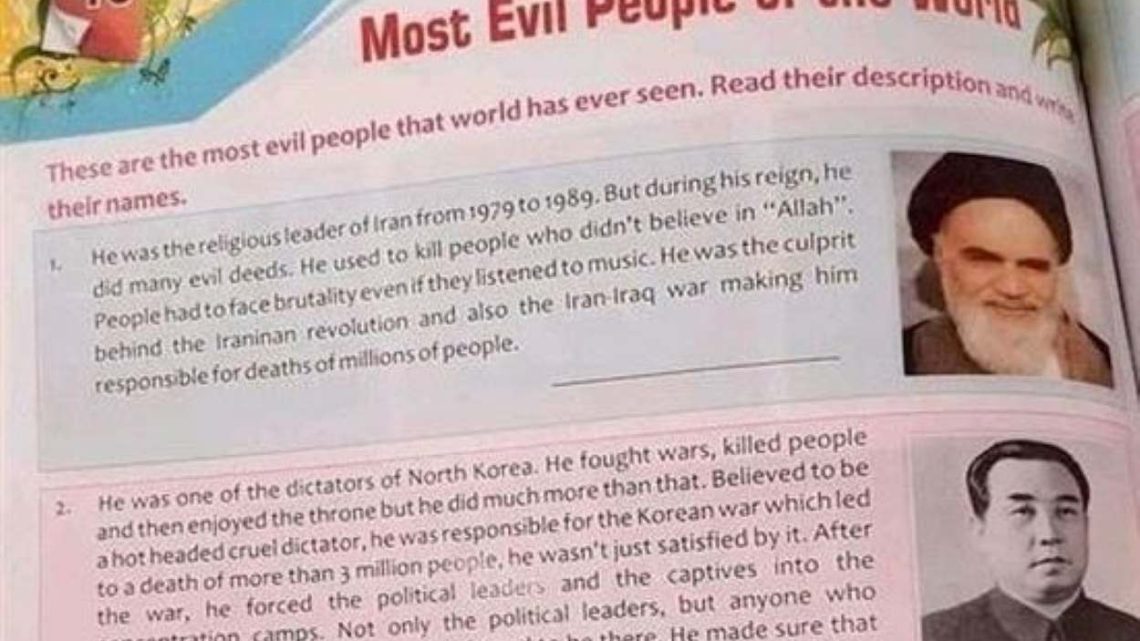
Desecration of Revered Imam Khomeini by India
May 3, 2024In a recent publication by Indian Acuber Books International, Ayatollah Ruhollah Khomeini found himself listed among the ‘most evil men in history.’ This portrayal of the influential Iranian Islamic revolutionary, politician, and religious leader sparked outrage among his followers and admirers worldwide.
Imam Khomeini, revered as the founder of the Islamic Republic of Iran and the leader of the Iranian Revolution, holds a significant place in history for his role in shaping the modern Islamic world. Therefore, being branded as one of history’s most evil figures was not only seen as deeply offensive but also as a gross mischaracterization of his legacy.
The incident prompted swift reactions from Khomeini’s supporters, with the group ‘Khomeini For All’ stating their official handle on social media. They condemned the publication’s portrayal of Imam Khomeini and called for immediate action from authorities. The group emphasized that failing to address the issue adequately could lead to widespread community outrage.
Their call for action was directed specifically at the Meerut and Delhi police, urging them to take measures against the publishers. The group emphasized that the insult was not only directed at Muslims but also at all those who admire and respect Imam Khomeini worldwide.
The publishers recognized the importance of rectifying their error and pledged to do so swiftly and unequivocally. However, despite the apology, ‘Khomeini For All’ maintained their stance, urging authorities to investigate the underlying motives behind the publication’s actions.
The controversy surrounding the portrayal of Ayatollah Khomeini raises broader questions about the responsibility of publishers and the portrayal of historical figures. It underscores the importance of accuracy and sensitivity when depicting individuals who hold significant cultural, religious, and historical importance.
Furthermore, the incident highlights the power dynamics at play in shaping historical narratives and the potential consequences of misrepresentation. In an era where misinformation can spread rapidly, publishers must exercise caution and diligence in their portrayal of sensitive subjects.
Ultimately, the apology from Acuber Books International serves as a step towards reconciliation, but it also serves as a reminder of the ongoing need for accountability and respect in the realm of publishing. The controversy surrounding the portrayal of Ayatollah Khomeini serves as a cautionary tale, emphasizing the importance of upholding truth, accuracy, and sensitivity in all forms of media.

